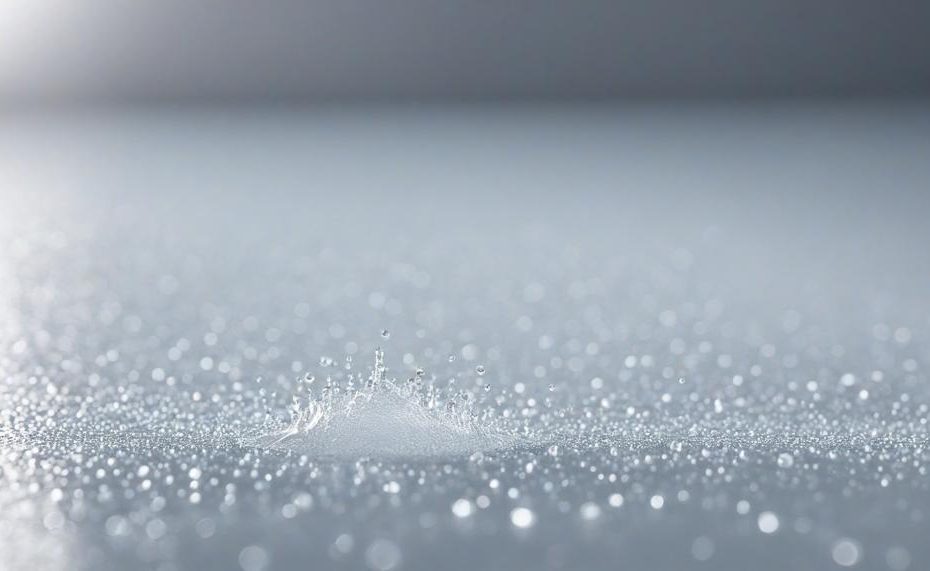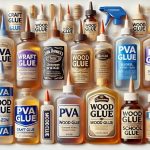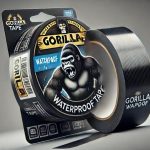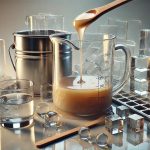White glue, often recognized by its popular brands like Elmer’s or simply referred to as PVA (polyvinyl acetate) glue, is a staple in many households and workshops. Its versatility and ease of use make it the go-to adhesive for countless crafting and DIY projects. However, a common question arises: is white glue waterproof when dry?
Key Takeaways:
- Not Entirely Waterproof: White glue is not completely waterproof. It can handle light moisture and humidity but will break down with prolonged water exposure.
- Water-Resistant Varieties: Some manufacturers offer water-resistant versions of white glue, but even these have their limitations.
- Advantages: Versatile, dries clear, and is non-toxic.
- Drawbacks: Loses adhesive properties when wet, can wrinkle paper or thin materials, and is difficult to clean once dried.
- For Better Water Resistance: Consider using epoxy or polyurethane adhesives for projects needing stronger waterproof capabilities.
Understanding the properties of white glue is essential for choosing the right adhesive for your project. In this blog post, we’ll delve deeper into why white glue behaves the way it does with water and explore the situations where it may or may not be suitable. Stay tuned to make sure your next project stands the test of time—and moisture.
Table of Contents [show]
What is Elmer’s Glue?
Elmer’s Glue is a widely recognised brand of adhesive, particularly popular in schools and for DIY crafts. This white glue, officially a type of polyvinyl acetate (PVA) emulsion, has been a staple in households and classrooms for over six decades.
Key Characteristics and Uses
- Composition: Made from polyvinyl acetate (PVA), Elmer’s Glue is a synthetic polymer emulsion. This material gives it its distinctive white colour and adhesive properties.
- Applications: Primarily used for school projects, arts and crafts, and light repairs. It is prized for its versatility, ease of use, and safety, especially for children.
- Drying and Finish: Dries clear, which is ideal for projects where a neat finish is necessary. It also forms a strong bond with paper, wood, fabric, and various other materials.
- Non-Toxic: Safe for use by children and in educational settings, it is non-toxic and washable.
Advantages
- Versatility: Can be used on a wide range of materials including paper, wood, fabric, and ceramics.
- Ease of Use: Simple to apply with a brush or directly from the bottle. Clean-up is also straightforward with water when the glue is still wet.
- Transparency: Dries clear, making it aesthetically pleasing for most crafting projects.
- Non-Toxicity: Safe for use by children, making it ideal for school projects.
Limitations
- Water Sensitivity: While it can withstand light moisture, prolonged exposure to water can break down the adhesive properties. There are water-resistant variants, but they also have limitations.
- Wrinkling: Can cause wrinkling of paper or thin materials if applied too thickly.
- Cleanup Difficulty: Once dried, it can be challenging to remove.
For tasks requiring strong water resistance or durability, other adhesives like epoxy or polyurethane are better suited. Proper application and surface preparation are crucial for achieving the best results with Elmer’s Glue.
How Does Elmer’s Glue Work?
Elmer’s Glue operates through a process of polymerisation, which involves the formation of long chains of molecules called polymers. When the glue is applied to a surface, its polyvinyl acetate (PVA) component begins to penetrate the pores of the material.
As the water in the glue evaporates, these PVA molecules come closer together, forming strong, flexible bonds.
| Feature | Description | Material Compatibility |
| Adhesion | Sticks to surfaces through polymerisation | Best on porous materials (paper, wood, fabric) |
| Drying Time | Depends on the amount applied and humidity | Typically a few hours for full strength |
| Strength | Forms a flexible but strong bond | Not suitable for heavy-duty or non-porous materials |
| Limitations | Not water-resistant, may wrinkle paper | Unsuitable for glass, plastic, metal |
Is Elmer’s Glue Waterproof?
No, Elmer’s Glue is not waterproof. When exposed to water, it dissolves and loses its adhesive properties. Despite forming a strong bond through polymerization and the evaporation of water, Elmer’s Glue is primarily suitable for porous materials such as paper and wood. It is not designed to withstand water exposure and thus is not effective for waterproof applications.
However, Elmer’s Glue can create a water-resistant barrier once it dries. This characteristic makes it useful for certain waterproofing projects, but it’s crucial to understand the distinction between “water-resistant” and “waterproof.”
Water-resistant means it can resist some exposure to water but will not hold up under continuous or heavy water exposure. For truly waterproof applications, a different type of adhesive, such as a marine epoxy or a silicone-based adhesive, would be necessary.
Here’s a quick comparison to clarify:
| Adhesive | Waterproof? | Suitable Applications |
| Elmer’s Glue | No | Paper, Wood, Porous Materials |
| Marine Epoxy | Yes | Boats, Marine Repairs |
| Silicone Adhesive | Yes | Bathrooms, Kitchens, Outdoor Sealing |
How to Make Elmer’s Glue Waterproof
| Effective Ways to Make Elmer’s Glue Waterproof | Explanation | Details |
| Additives | Enhance Elmer’s glue by incorporating additives like white vinegar or baking soda, which improve its ability to resist moisture. | This method alters the glue’s chemical composition, increasing its durability against water exposure. |
| Topcoat Application | Apply a thin layer of Elmer’s Glue over your project’s surface and allow it to dry completely. | Creates a protective barrier that shields against water damage, ideal for outdoor crafts. |
| Specialized Products | Consider Elmer’s Glue-All Max or other waterproof variants for projects needing stronger water resistance. | While not entirely waterproof, these products offer better protection than standard Elmer’s glue. |
These methods can significantly enhance Elmer’s glue’s ability to withstand moisture, making it more suitable for various crafting and repair tasks.
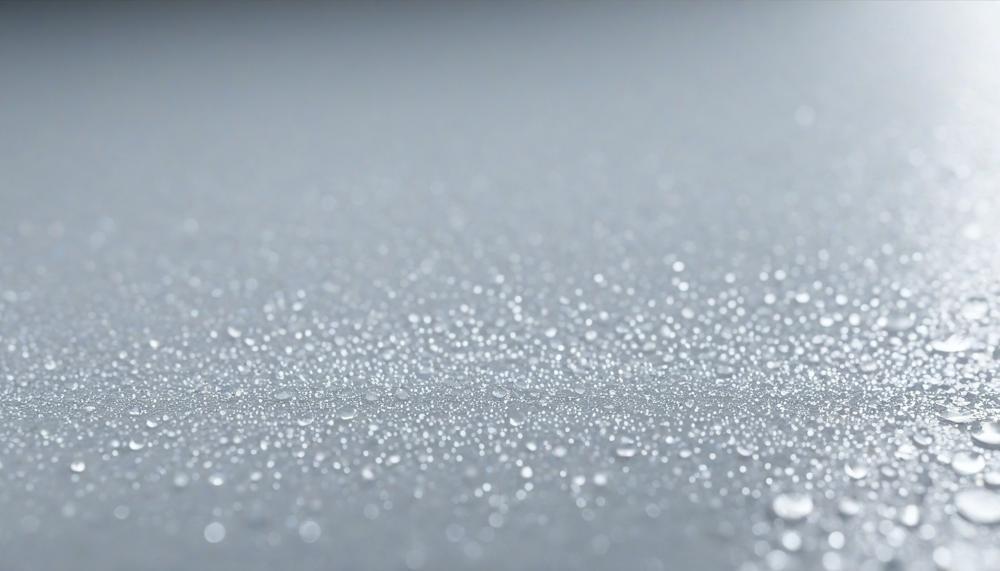
When Waterproofing Elmer’s Glue Doesn’t Work
Elmer’s glue might not be effective for waterproofing in certain situations due to several key factors:
- Adhesive vs. Sealant: Elmer’s glue is mainly an adhesive meant to bond materials rather than a sealant intended to form a waterproof barrier. This fundamental difference limits its ability to fully prevent water penetration.
- Limited Water Resistance: While Elmer’s glue does have some water-resistant properties, it is not genuinely waterproof. It can withstand light rain or occasional splashes but fails under prolonged exposure to water or submersion.
- Misconception about Glue-All Max: Elmer’s Glue-All Max, marketed as waterproof, does not offer complete waterproofing. It handles minor water exposure but is unsuitable for uses demanding full waterproof protection.
- Solubility: Even when dry, Elmer’s glue can dissolve in water, making it vulnerable in environments with significant or continuous water exposure.
- Performance in Wet Environments: Using Elmer’s glue in consistently wet conditions or on items frequently exposed to heavy moisture, such as shoes, bags, or backpacks, is ill-advised. Its effectiveness decreases over time when subjected to moisture.
- Additives: While adding substances like white vinegar or baking soda might slightly improve its moisture resistance, these enhancements do not transform Elmer’s glue into a fully waterproof adhesive.
- Suitable Applications: Elmer’s glue is effective for indoor projects or non-moist environments where its limited water resistance is sufficient. For outdoor or heavily exposed applications, specialized waterproof adhesives are recommended.
So, Elmer’s glue is versatile for many crafting and repair projects but falls short in scenarios requiring full waterproofing. For such needs, adhesives specifically designed for waterproofing or outdoor conditions are preferable.
Other Types of Waterproof Glue
When it comes to bonding materials in environments exposed to moisture, several alternative types of waterproof glue stand out for their unique properties and applications.
| Type of Waterproof Glue | Best Use Scenarios | Features |
|---|---|---|
| Epoxy Adhesive | Ideal for bonding materials like wood, metal, glass, and plastic. Commonly used in boat building, construction, and automotive repairs. | Offers exceptional strength, durability, and resistance to water, chemicals, and temperature variations. Provides a clear or translucent finish when cured. |
| Polyurethane Adhesive | Suitable for outdoor furniture, decking, and marine applications. Effective for bonding wood, metal, stone, ceramics, and some plastics. | Known for its flexibility, impact resistance, and ability to withstand harsh environmental conditions. Creates a strong and waterproof bond. |
| Cyanoacrylate (Super Glue) | Useful for quick repairs on small items and non-porous materials such as metal, rubber, and certain plastics. | Provides rapid bonding with high strength. Offers resistance to water and heat after curing. Suitable for indoor and outdoor use. |
These alternative waterproof glues offer diverse solutions for different material types and project requirements, ensuring reliable adhesion in challenging environments where exposure to moisture is a concern.
Conclusion
Elmer’s Glue, like many white glues or PVA adhesives, is a versatile and safe adhesive commonly used in schools and for DIY projects. However, when it comes to water resistance, it has its limitations.
White glue is not fully waterproof. While it can resist light moisture and humidity, prolonged exposure to water will cause it to break down and lose its adhesive properties. This makes it unsuitable for applications where the glued material will be consistently exposed to water.
Water-resistant versions of white glue do exist, but they also come with limitations. They provide better moisture resistance than regular white glue but still can’t withstand continuous or heavy water exposure.
For projects that require strong water resistance, other types of adhesives are recommended. Epoxy or polyurethane adhesives are excellent alternatives for such applications. These adhesives provide a robust waterproof bond, ideal for environments with high moisture levels.
In summary, understanding the properties and limitations of white glue helps ensure the right adhesive is chosen for each project. While white glue is perfect for many crafting and light repair tasks, it’s not suitable for waterproof needs.

